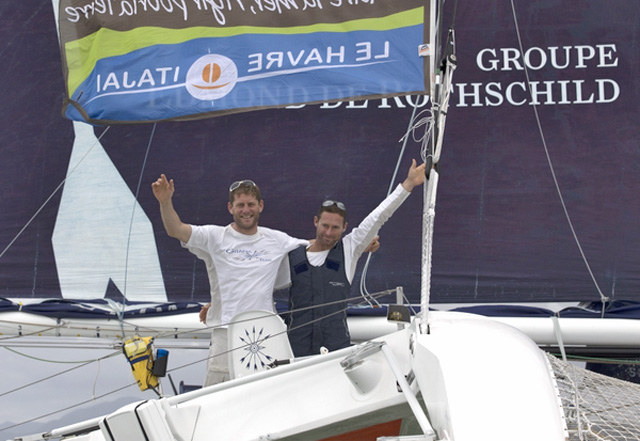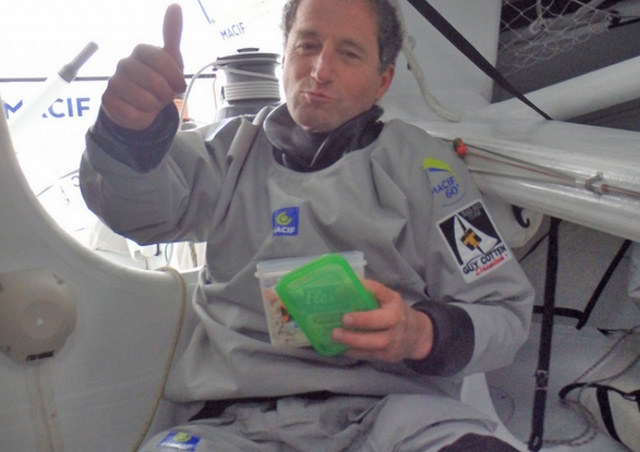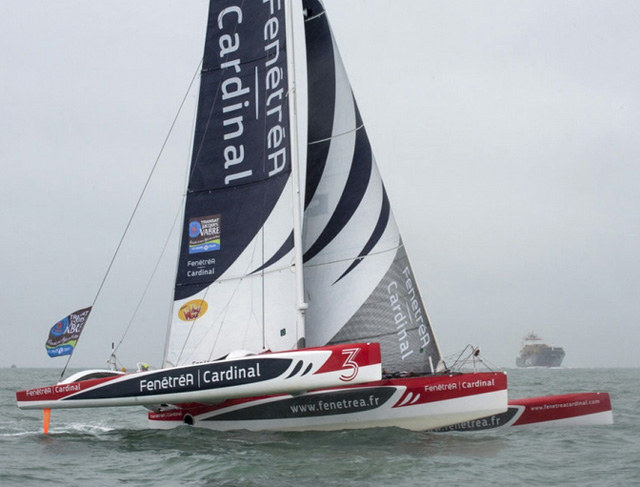
Transat Jacques Vabre Update
Now more than 13 days into the Transat Jacques Vabre race, we’ve seen it all. Trimarans both breaking and capsizing at sea, a huge fleet of Class 40s hitting rough weather and diverting to port, and broken rudders galore, which has resulted in several pit stops among the leaders and the resultant shuffling of the results. Aside from all of the broken boats and broken dreams of the first days of the race, the TJV has also offered incredibly close and tactical racing, just as we had hoped, with fully half the fleet having led the IMOCA class at one point or another and none of the other class leaders extending out to sizable leads.

The transAtlantic MOD70 match race that we were looking forward to never quite materialized, but it was a thriller none the less. Sébastien Josse’s Edmond de Rothschild extended out to a small lead after Cape Finisterre and held off Sydney Gavignet’s Oman Air-Musandam all the way to the finish. The Omani boat made a more easterly Doldrums crossing and cut into Josse and crew’s lead, but in the end came up just over five hours short. The winning boat, Edmond de Rothschild, blazed across the 5,450-mile course in just 11d, 5h, 3m at an average speed of just over 20 knots.

©2013 Latitude 38 Media, LLC
The 10-boat IMOCA fleet’s leaders are just more than 1,200 miles away from the finish in Itajal, and the race is still up for grabs as Vendée Globe winner MACIF has a lead of just 20 miles over second place PRB, skippered by 2004 VG winner Vincent Riou. Despite MACIF‘s making a technical stop in Portugal and PRB‘s making an under-one-hour pit stop in the Cape Verde Islands, the two VPLP-designed speedsters have been engaged in a two-boat match race that recently saw a brief and painless passage of the Doldrums and now begins to rage down the Brazilian Coast. Should either boat falter, their three training partners in Port La Foret (Maitre Coq, Safran and Cheminees Poujoulat) are close behind and ready to assume the lead.
After a rough start and resultant weather stopover in Roscoff, Portugal, the TJV’s biggest fleet — the Class 40s — are now preparing for what could be the trickiest and slowest of all the race’s Doldrums crossings. Pre-race favorite GDF SUEZ, skippered by Class 40 standout Sebastian Rogues, has led since the start, yet is preparing to see their not-sizable lead challenged. Jorg Reichers’ MARE and Alex Pella’s Tales Santander 2014 are roaring up from behind as GDF SUEZ is the first boat to become slowed by the doldrums.

The Multi 50 class — six 50-ft trimarans — have not surprisingly had the most dramatic failures in the race. First it was Maitre Jacques, challenging for the lead at the time, damaging the structure of the boat and ripping off the front of the starboard ama. The crew nursed the wounded tri into port just as Arkema-Region Aquitaine capsized. A week later, the boat is finally being towed into Madeira and righted. With two of the fleet’s four ‘fast’ boats wounded, the Multi 50 class has turned into a two-trimaran match race á la the MOD 70s. With the two leaders now just under 600 miles from the finish in Itajal, FenêtréA Cardinal, co-skippered by Yann Elies, has worked their way into a 50-mile lead over defending TJV champ Actual, while the two back markers mix it up with the Class 40s, more than a thousand miles behind. Wouldn’t it be incredible to watch Elies win the TJV after back-to-back Figaro wins?
